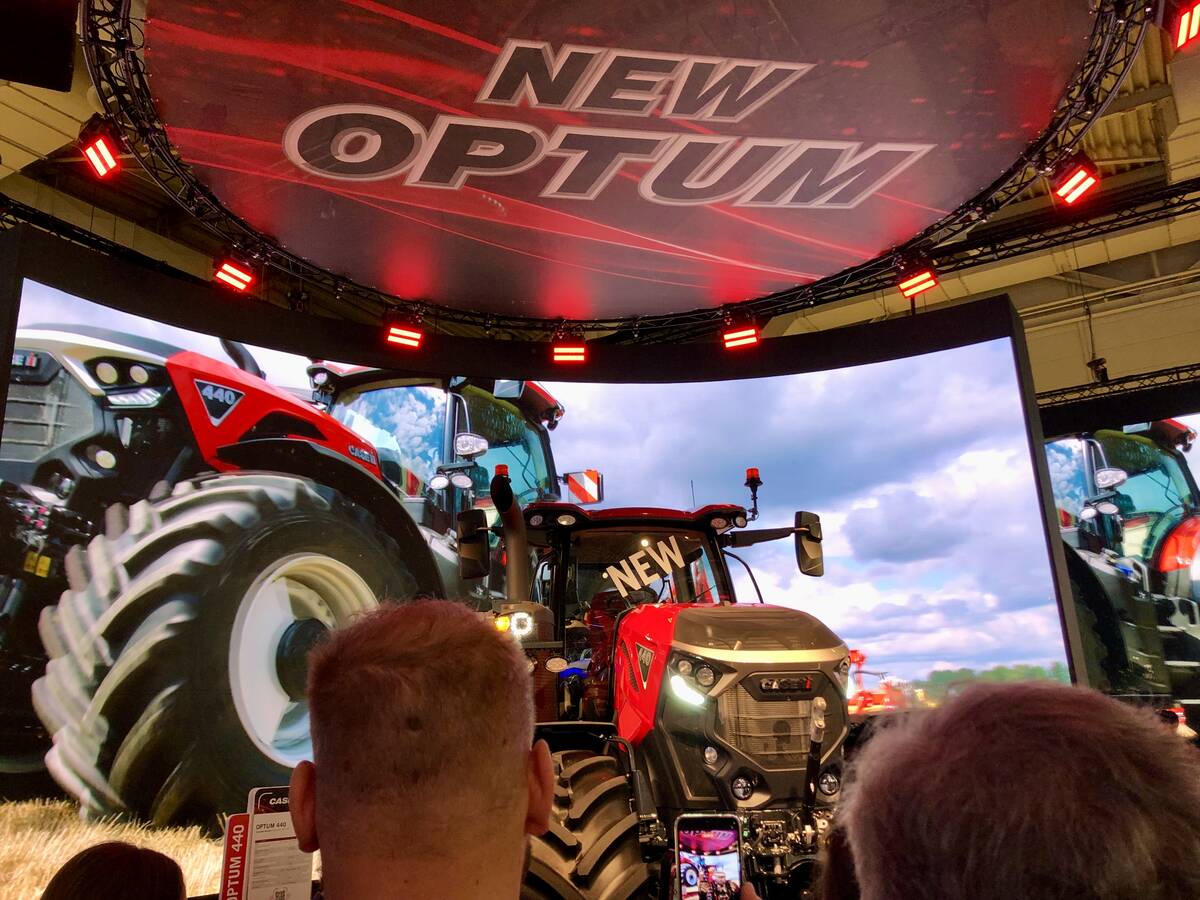SAINT PROSPER, Que. – The way Mario Larochelle sees it, he is following all the rules.
The dairy farmer in the Beauce region south of Quebec City is in a provincially designated green zone. He can’t subdivide his land for residential housing or roads or a golf course. So, he asks, why should his neighbors have any say in what he does on his own farm?
But his proposal to erect two barns, one with 600 sows, and the other to raise their 1,800 piglets, has run into opposition in the town and municipality of Saint Prosper.
Read Also

VIDEO: Case IH reveals new Optum tractor at Agritechnica 2025
Case IH reveals its new Optum tractor at Agritechnica 2025.
The mayor of the district, Marcel Tanguay, agrees that Larochelle’s plans fit provincial environment regulations. But he also has to consider concerns of a local committee opposing the hog barns. It collected 473 names on a petition out of the 3,800 that live in the municipality.
While Tanguay says that is not a substantial number, he says council moved slowly because the barns would be the first in the region. People are aware of the odor and other problems with hog barn development that happened 10 years ago in a village 40 kilometres away. They don’t want it here.
“It’s not the same case at all but people were afraid,” said Larochelle, who farms about 400 acres where he milks 25 cows, cuts wood for the region’s sawmills, grows crops for feed and grows hay to sell.
Speaking in French, Larochelle explained through a translater how rumors fueled fears over the project. He said talk in the area pegged the project at 12,000 pigs instead of the proposed 2,400, and said the barns would be 150 metres from the town’s wells, not the actual one kilometre.
His father, now living in town, felt isolated, and Larochelle heard a mutter from one of the teachers on the opposing committee that it might be hard for his son to be in school next year.
Larochelle submitted his hog barn proposal to the provincial government July 2 and is still awaiting word on acceptance.
“Usually it’s financing at the bank that is the worst part. I’m not even there yet.
“Ask the mayor if there is a moratorium on hogs in Saint Prosper,” he said.
Over the summer Larochelle drew up the required plans for each barn plus the manure lagoon, for a cost of $1,200.
The town spent more than $8,000 getting an engineer’s assessment of his project and any potential danger to the town wells. That study showed a potential problem if manure seeped through the gravel and sandy topsoil and through the fault lines of rocks into the aquifer, about 35 metres underground.
Mayor Tanguay said the town must give a recommendation about the project to the province. The province’s environment department asked for another study but the town wasn’t willing to pay for more.
He said the council plans to send a letter next month to the environment department noting several factors:
- The proposals conform to regulations but there are concerns about odors, although in prevailing winds the sites are downwind of most of the neighbors and the town.
- A pioneer village attracts about 19,000 tourists each summer and is located a half kilometre from one of the corn fields where Larochelle proposes to spread manure.
- There is potential for water pollution. But the town plans to regularly test the water for nitrates and coliform bacteria if the barns go ahead.
“We were never against Monsieur Larochelle or his project. But we wanted to be sure it met the guidelines,” the mayor said through a translator.
Tanguay made a hand washing gesture and laughed. He said he is retiring as mayor and it will be someone else’s problem after Nov. 2. But he expected the province will approve Larochelle’s proposal.
Tanguay said he sees Saint Prosper as virgin territory for future hog barns as big feed mills are pushing to expand the province’s pork industry.
Larochelle admits the Co-op Federee paid for his barn plans, but insists these barns will be his.
His neighbors ate his corn fertilized by manure from his dairy herd but have yet to be convinced about hog barns.
“I could have added 100 cows more and they wouldn’t complain. But the word ‘cochons’ (pigs) … .”














